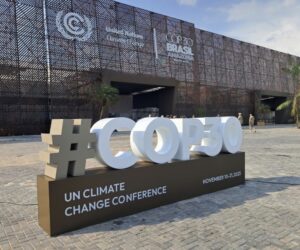Co-Founder and Chief Executive Officer of Dairy Hills, Kelvin Emmanuel, said the 15 percent import tax imposed by the federal government was a direct result of regulatory failure in enforcing the Petroleum Industry Act (PIA).
Speaking during an interview on ARISE News on Monday, Emmanuel explained that the move by President Bola Tinubu’s administration was consistent with international trade law, stating that it complied with global provisions on trade protection and fair competition.
He blamed weak regulation for the imbalance in the oil market, stressing that the government was forced to act to address the gap left by the regulators. “The failure of the regulator to enforce the PIA is the reason why the government decided to apply a 15% ad valorem on imports.”
According to him, regulators have failed to ensure the quality and standards of imported fuel products, which has distorted competition in the market. “I challenged them and I asked them, I said, they cannot say today that they have certificate of quality that is verifiable based on industry standards and tests for the quality of products because the quality of products determines the price.”
He added that the new executive order on import tax was designed to curb collusion among marketers. “If you look at that executive order that the state house has released, you see that it says that it’s to serve against, it’s to deter against what they call collusion. Collusion means that you have marketers who are importing products who come together and say, we’re going to set the price for this product. It’s called oligopoly and it’s anti-competition.”
Emmanuel commended the federal government for the decision, saying it was necessary to restore fairness in the downstream sector. “The 15% is in line with international trade laws. I congratulate the president for coming up with this policy. And it’s also to protect local industries because the competition is not fair.”
Reacting to claims that the import tax burden would fall on consumers, Emmanuel said the argument was incorrect because data used by regulatory bodies to determine consumption was unreliable.
“That is not correct. And the reason it’s not correct is because NBS cannot say that the data it collects from NMDPRA is based on any scientific evidence of actual daily consumption. The actual daily consumption numbers NMDPRA claims Nigeria consumes is based on projection. When you’re calculating daily consumption, you don’t use projection.”
He explained that the lack of accurate data had led to unnecessary import licensing, arguing that the figures used were exaggerated. “Nigeria doesn’t actually consume 50 million liters of PMS. They’re going to dump 45 million liters of PMS, 26 million liters of diesel, and about 40 million liters of Jet A1. Even if Nigeria consumes about five to six million liters of jet on a daily basis.”
Emmanuel further accused regulators of deliberately avoiding the establishment of a proper framework for measuring actual fuel usage. “Why is the regulator refusing to establish a scientific framework for actual daily consumption as provided by the PIA? Is that so it could justify keeping the import licenses of the people who trans-ship and blend products? They go to ports in Russia, they buy mazout condensate, they mix it with crude oil from Kazakhstan, they ship it to Lomé, they blend it, then they trans-ship it to Nigeria. This is the reality of what is going on. This is not speculation, it’s not an allegation, it’s a statement of fact.”
Addressing local capacity, Emmanuel maintained that domestic refineries could meet Nigeria’s fuel demand if supported properly. “Local production is able to meet local demand if they take products from Dangote.”
He also criticised government spending on existing refineries, describing them as wasteful and obsolete. “If the government is afraid about competition, it should ask NNPC management not to waste more money in that turnaround maintenance they want to do to those dead refineries, and actually invest fresh money in building fresh refineries to compete with Dangote. Those refineries are a dream pipe. Warri, Port Harcourt, Kaduna, they’re a dream pipe.”
Emmanuel disclosed that the Dangote Refinery currently produces more than what the market is willing to take locally. “First of all, Dangote currently supplies anywhere between 20 and 22 million litres of PMS. Not because he doesn’t have the capacity to, but because that is what the market is taking from him on a daily basis. His actual daily production currently is 20 from him, then he has to sell and export 25 million litres.”
He also dismissed proposals for subsidies to balance market prices, insisting it was not sustainable. “Dangote is not the government, so you can’t be offering them subsidy to give them labour premium, playing field to compete with it. They are asking for the privilege of the refinery, and they didn’t invest money.”
On the issue of accurate consumption measurement, Emmanuel advocated a data-driven monitoring approach. “Truck outs measure how many trucks leave the depots and the gantries. At least for Dangote, you can confirm how many trucks leave the gantries and how many litres of truck goes out on a daily basis. For the depots, the truck out figure, right, historically has been a way to justify petroleum equalization fund numbers. It’s not a scientific way to calculate daily consumption. There are more technologically advanced ways of calculating consumption.”
He urged regulators to implement existing monitoring standards to ensure transparency and accountability. “The regulator has an SOP for instituting a scientific or empirical framework for calculating daily consumption. It just doesn’t want to implement it.”
Faridah Abdulkadiri
Follow us on:








